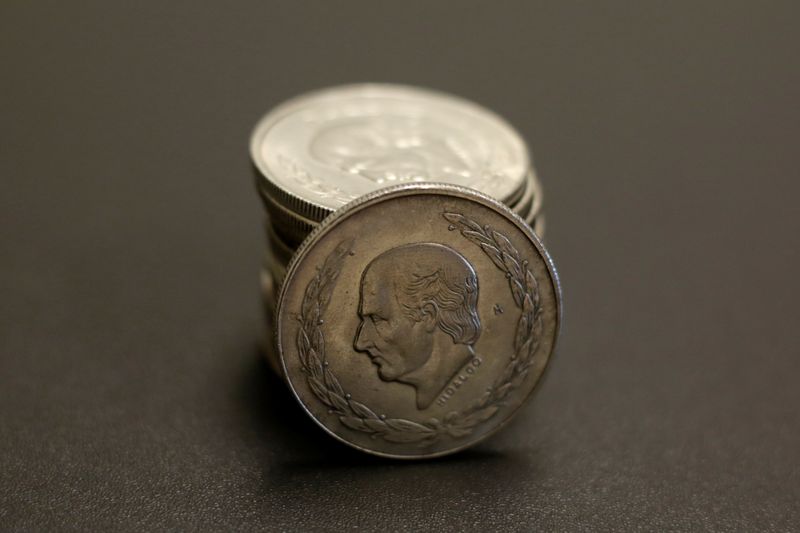By Abraham Gonzalez
MEXICO CITY (Reuters) - Mexico is on track to mark a second year of record foreign capital outflows from the country's sovereign debt market, with more than $10 billion having left so far.
Persistent high inflation, a fresh wave of COVID-19 and uncertainty created by government policy decisions have dampened appetite for Mexican debt.
Some 202 billion pesos ($10 billion) in capital left the market during January-July, compared to 257 billion pesos for all of 2020, central bank figures show. In July alone, the exodus hit 67.5 billion pesos.
Inflation was twice the official 3% target in April and has not eased much since, forcing the central bank to raise its key rate twice to 4.5%.
While the Mexican economy has made a recovery from last year when it contracted 8.5% due to the pandemic, that progress is now threatened by a surge in COVID-19 infections.
"(The infections) have significantly increased risk aversion in our country," said Janneth Quiroz, deputy director of analysis for brokerage Monex.
Reflecting that increase in risk aversion, the yield on Mexico's benchmark 10-year bond was 6.97% on Friday, compared with 5.30% at the end of 2020.
Analysts said some government decisions that have hit the interests of private companies, particularly in the energy sector, have also increased the perception of risk for Mexico's economy.

"The uncertainty that has been generated about respect for the rule of law has been a constant criticism from within the private sector," Ramse Gutierrez, co-chief investment officer at asset manager Franklin Templeton, told Reuters.
Gutierrez added that funds were being drawn out of Mexico due to the inclusion of China's bonds in emerging market debt indexes, driving foreign holdings of that country's bonds to record levels.